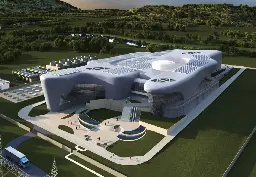Designs chosen for mini nuclear reactors
Designs chosen for mini nuclear reactors

www.constructionenquirer.com
Designs chosen for mini nuclear reactors

The next stage of the process will see companies able to bid for Government contracts with successful bids from the six going to contract award stage next summer.
Next summer is soon
